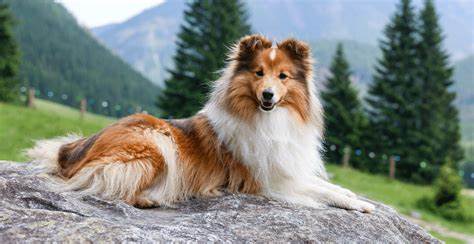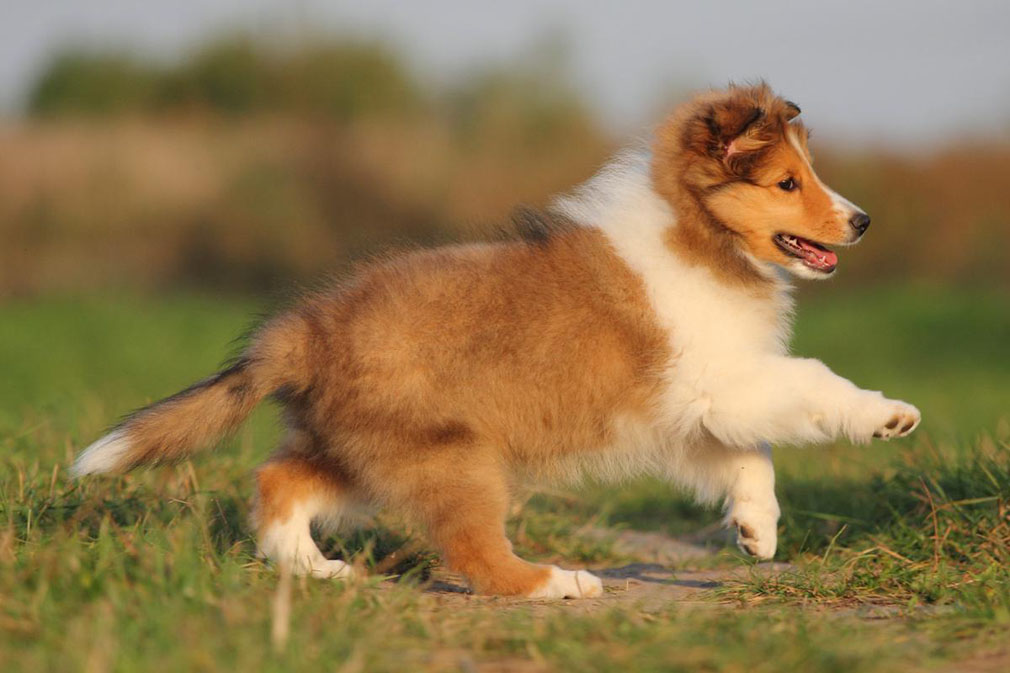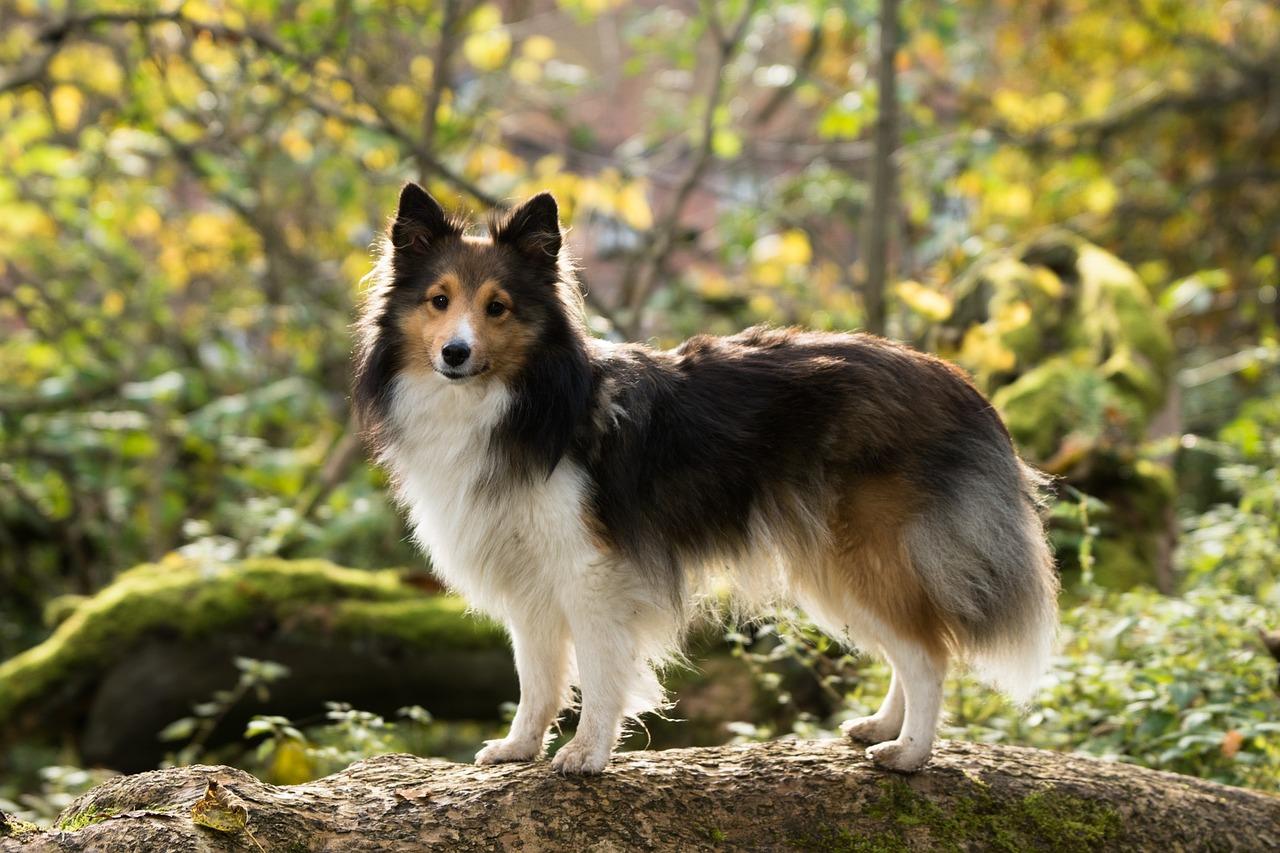
The Shetland Sheepdog, often affectionately called the "Sheltie," originated in the Shetland Islands of Scotland. These remote, rugged islands necessitated small, agile dogs to herd sheep and protect flocks from birds and predators. Shelties were developed from crosses between Collies and smaller working breeds, carefully refined to create a compact yet capable herding dog.
In the early 20th century, the Sheltie gained recognition beyond its island home, becoming popular in Britain and then the United States. It was officially recognized by the American Kennel Club in 1911.
The Shetland Sheepdog remains one of the most beloved companion and competition breeds in the world. Their intelligence, trainability, and striking beauty have made them stars in obedience, agility, and herding competitions. Their loving and loyal temperament has also ensured a steady presence in family homes.
In North America especially, Shelties consistently rank among the most popular breeds for active families and dog sport enthusiasts.
The Shetland Sheepdog is a small-to-medium-sized dog, elegantly proportioned with a luxurious double coat.
• Height: 13–16 inches (33–41 cm)
• Weight: 15–25 pounds (7–11 kg)
• Build: Light, graceful, and athletic
• Coat: Long, straight, harsh outer coat with a dense undercoat
• Color: Sable, black, blue merle, often with white and/or tan markings
• Head: Refined, with a flat skull and slight stop
• Eyes: Medium-sized, almond-shaped, usually dark (blue in merles)
• Ears: Small, carried semi-erect with tips falling forward
• Tail: Long and carried low when at rest
Their stunning coat and sweet, intelligent expression contribute to their irresistible charm.
Shelties are celebrated for their intelligence, devotion, and sensitivity.
• Affectionate: Deeply loyal to family, forming close emotional bonds.
• Intelligent: Among the top breeds for intelligence and trainability.
• Energetic: Needs regular physical and mental stimulation.
• Alert: Excellent watchdogs; quick to alert to anything unusual.
• Sensitive: Responds best to gentle, positive training methods.
Their high intelligence makes them eager learners, but their sensitivity requires thoughtful handling.

The Sheltie is ideal for:
• Active families or individuals who enjoy training and dog sports
• Those seeking a loyal, affectionate companion
• Owners wanting an intelligent dog that excels in obedience and agility
• Homes with space to run and play
However, it may not be ideal for:
• Households wanting a low-shedding dog (Shelties shed heavily)
• Families uncomfortable with a vocal dog (Shelties tend to bark)
• Owners unable to commit time to regular grooming and mental stimulation
Shelties thrive in engaged, active homes where their minds and bodies are kept busy.
• Exercise: Moderate to high; needs daily walks, playtime, and training activities.
• Training: Excels with positive reinforcement; early socialization is essential.
• Grooming: Requires brushing at least 2–3 times per week; more often during shedding season.
• Living Environment: Well-suited to suburban or rural homes; can adapt to apartments with sufficient exercise.
• Feeding: Balanced diet for small-to-medium active breeds.
Shelties also love structured activities like herding, agility, and obedience competitions.
Shetland Sheepdogs are generally healthy but can be prone to:
• Collie Eye Anomaly (CEA)
• Hip dysplasia
• Hypothyroidism
• Dermatomyositis (a skin and muscle disease)
Their lifespan typically ranges from 12 to 14 years with proper veterinary care and a healthy lifestyle.

• Rough Collie: Larger and somewhat less intense; both share similar intelligence and affection.
• Border Collie: Border Collies are higher energy and more work-focused compared to the slightly calmer Sheltie.
• Miniature American Shepherd: Similar size but different heritage; Miniature American Shepherds are somewhat more robust and stockier.
If you seek an affectionate, trainable, and highly intelligent companion that enjoys staying busy and participating in activities, the Shetland Sheepdog could be the perfect fit. They thrive on attention, learning, and being part of a family.
Prospective owners must be ready to manage their grooming needs and provide sufficient exercise and mental enrichment.
Find reputable breeders who perform genetic health testing, particularly for Collie Eye Anomaly and hip dysplasia. Breed-specific rescue organizations also offer opportunities to adopt Shelties needing loving homes.
United Pet Club offers support with health resources, microchip registration, and care tips to help new Sheltie owners.